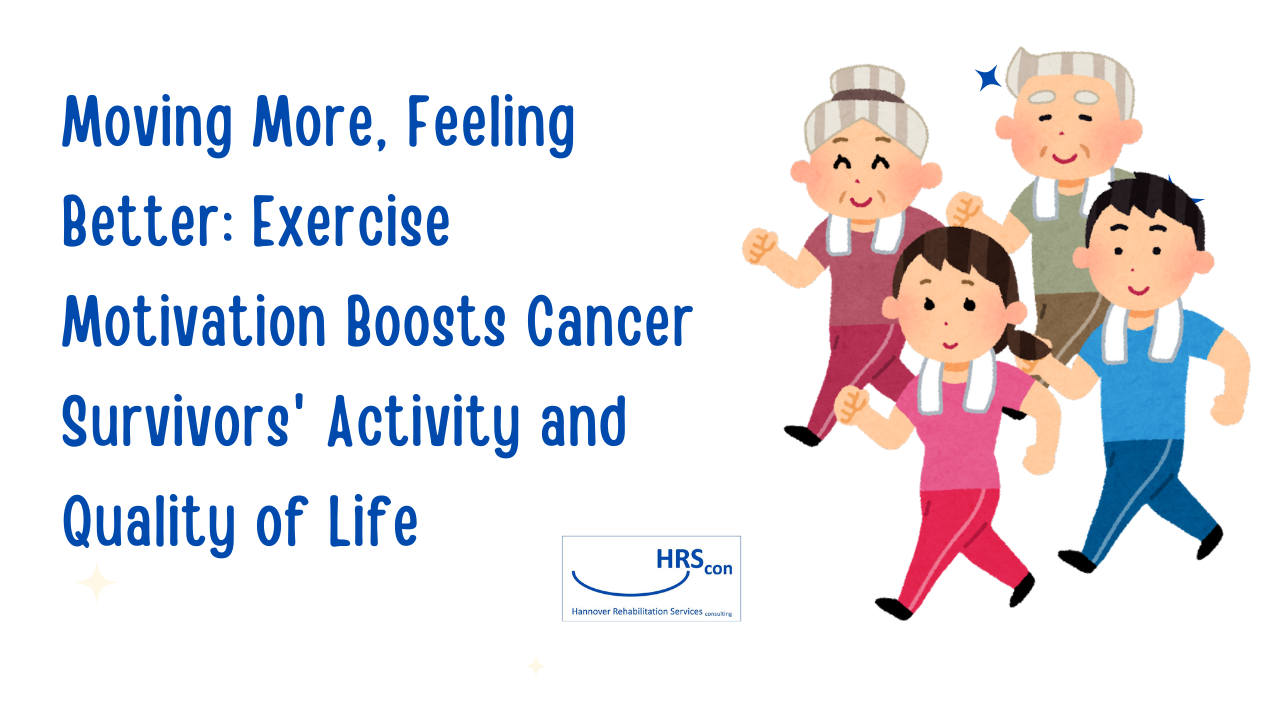The Power of Exercise After Cancer: A New Study Offers Hope
Regular exercise is crucial for everyone, but it holds particular importance for cancer survivors. A recent study explores the impact of exercise recommendations from oncologists, with and without additional motivational support, on physical activity levels and quality of life in breast and colorectal cancer survivors.
Recruiting Participants: Building the Study Foundation
Researchers recruited 162 individuals who had completed primary and adjuvant treatments for early-stage breast or colorectal cancer. These participants were then randomly divided into three groups: a control group, a group receiving only an oncologist’s exercise recommendation, and a group receiving both the recommendation and an additional exercise motivation package.
Setting the Baseline: Measuring Activity and Quality of Life
Both before the study began (baseline) and after four weeks, researchers assessed the participants’ level of exercise participation and quality of life (QOL). This allowed them to track any changes resulting from the interventions.
The Power of Motivation: Increased Activity Levels
Among the 130 participants who completed the study (80.2%), a clear trend emerged. The group that received both the oncologist’s recommendation and the exercise motivation package demonstrated a significant increase in their level of exercise participation. This increase was measured in two ways:
- Minutes of exercise per week: Participants in this group exercised an average of 47.57 minutes more per week compared to the control group.
- Metabolic Equivalent of Task (MET)-hours per week: This measure considers both the intensity and duration of exercise. Participants in the motivational package group increased their MET-hours by an average of 4.14 per week compared to the control group.
These findings highlight the significant impact of motivational support in encouraging cancer survivors to participate in more physical activity. Interestingly, the group that only received the oncologist’s recommendation did not experience an increase in exercise levels.
Beyond Activity: Improved Quality of Life
The study also revealed a positive influence on quality of life. Participants in the motivational package group demonstrated a significant improvement in their “role functioning” – their ability to fulfill their roles at work, home, and in society. This suggests that increased physical activity, combined with motivational support, can not only enhance physical well-being but also improve a survivor’s overall sense of self and capacity.
A Call to Action: Empowering Cancer Survivors
The study’s findings suggest that incorporating an exercise motivation package alongside oncologist recommendations can be an effective strategy for increasing physical activity and improving quality of life among breast and colorectal cancer survivors. This approach holds promise for promoting healthier lifestyles and a better overall well-being for this population.
Looking Ahead: Building on the Research
While the study offers valuable insights, further research is needed to explore the long-term effects of exercise interventions and motivational strategies on cancer survivors. Additionally, investigating the most effective components of exercise motivation packages can help tailor future interventions to the specific needs of different patient populations.
Overall, this study presents a positive message. By incorporating motivational support alongside medical advice, healthcare professionals can create a more comprehensive approach to promoting physical activity and improving the lives of cancer survivors.
Reference: here

